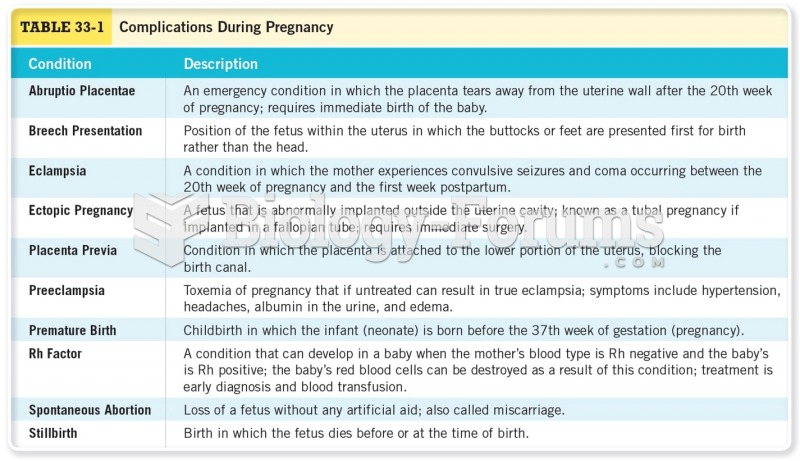|
|
|
Fatal fungal infections may be able to resist newer antifungal drugs. Globally, fungal infections are often fatal due to the lack of access to multiple antifungals, which may be required to be utilized in combination. Single antifungals may not be enough to stop a fungal infection from causing the death of a patient.
It is believed that the Incas used anesthesia. Evidence supports the theory that shamans chewed cocoa leaves and drilled holes into the heads of patients (letting evil spirits escape), spitting into the wounds they made. The mixture of cocaine, saliva, and resin numbed the site enough to allow hours of drilling.
Approximately one in three babies in the United States is now delivered by cesarean section. The number of cesarean sections in the United States has risen 46% since 1996.
All patients with hyperparathyroidism will develop osteoporosis. The parathyroid glands maintain blood calcium within the normal range. All patients with this disease will continue to lose calcium from their bones every day, and there is no way to prevent the development of osteoporosis as a result.
Between 1999 and 2012, American adults with high total cholesterol decreased from 18.3% to 12.9%
 Phyllis Schlafly drew much of her support from working-class women who were left vulnerable by the ...
Phyllis Schlafly drew much of her support from working-class women who were left vulnerable by the ...
 The mortality rate in the United States increases with age and is lower for women than men at every ...
The mortality rate in the United States increases with age and is lower for women than men at every ...





